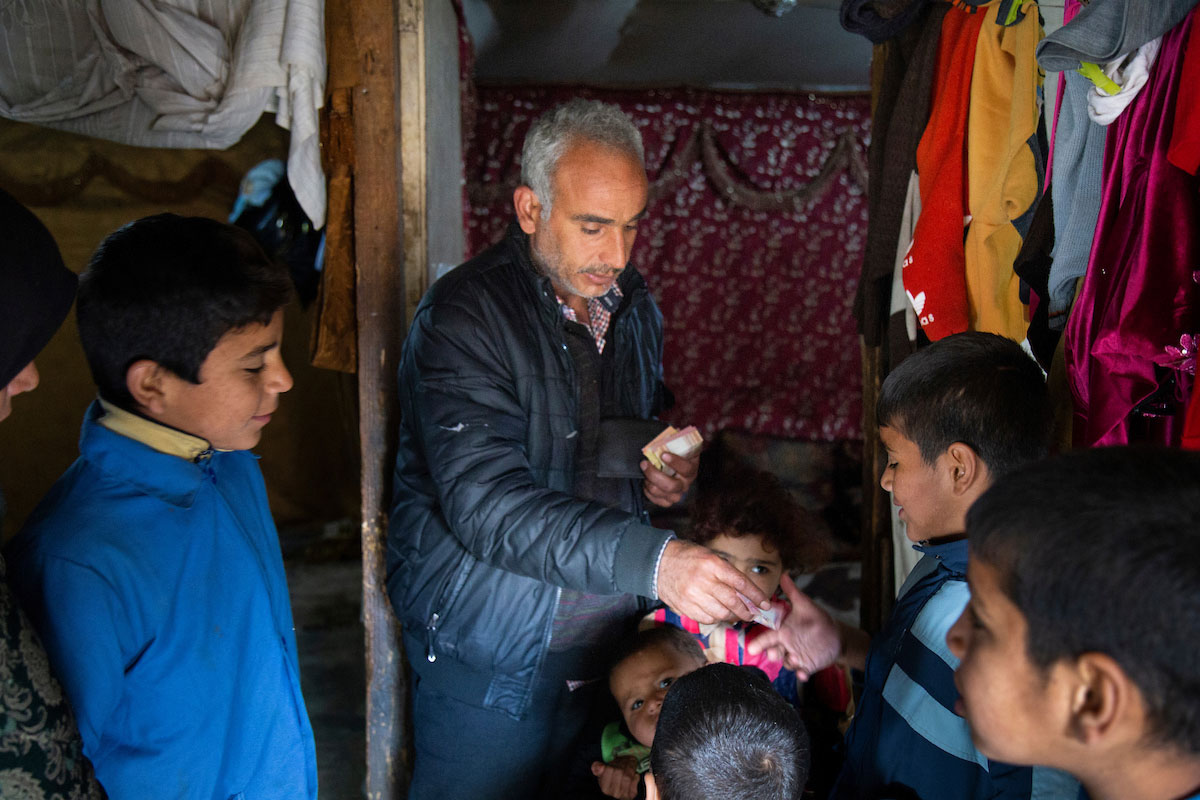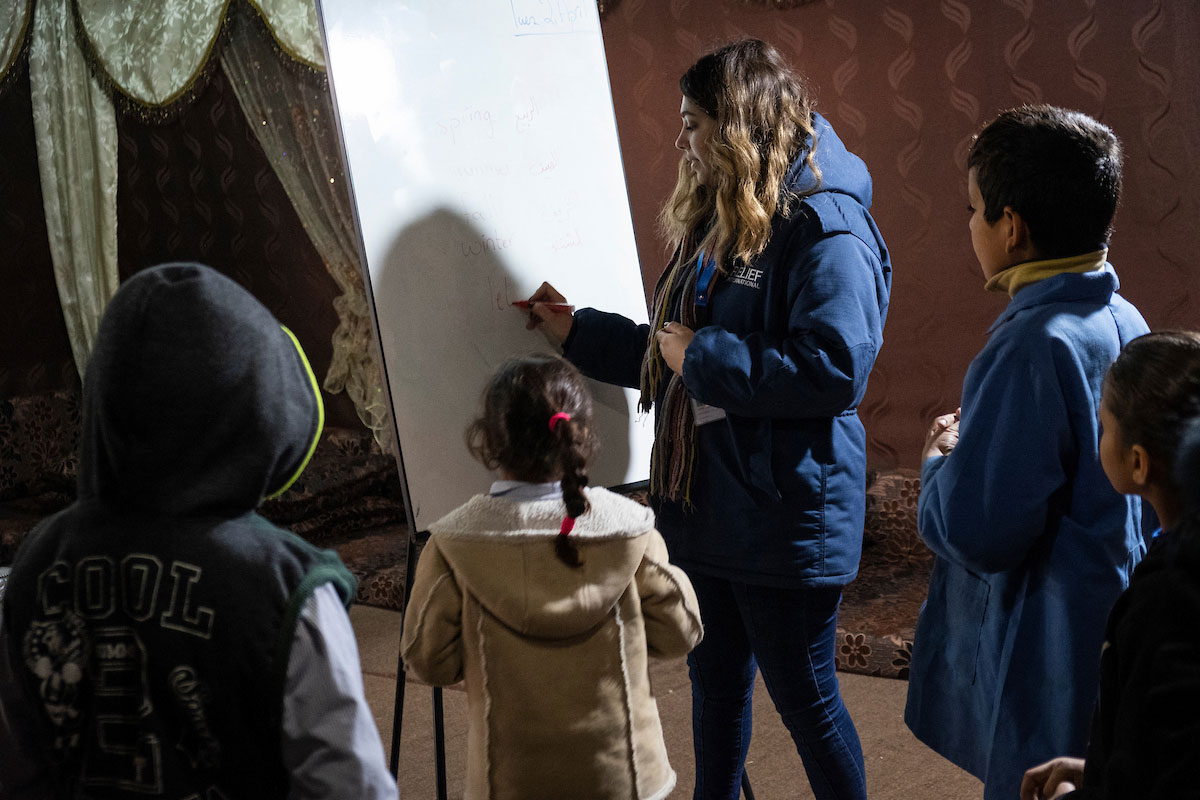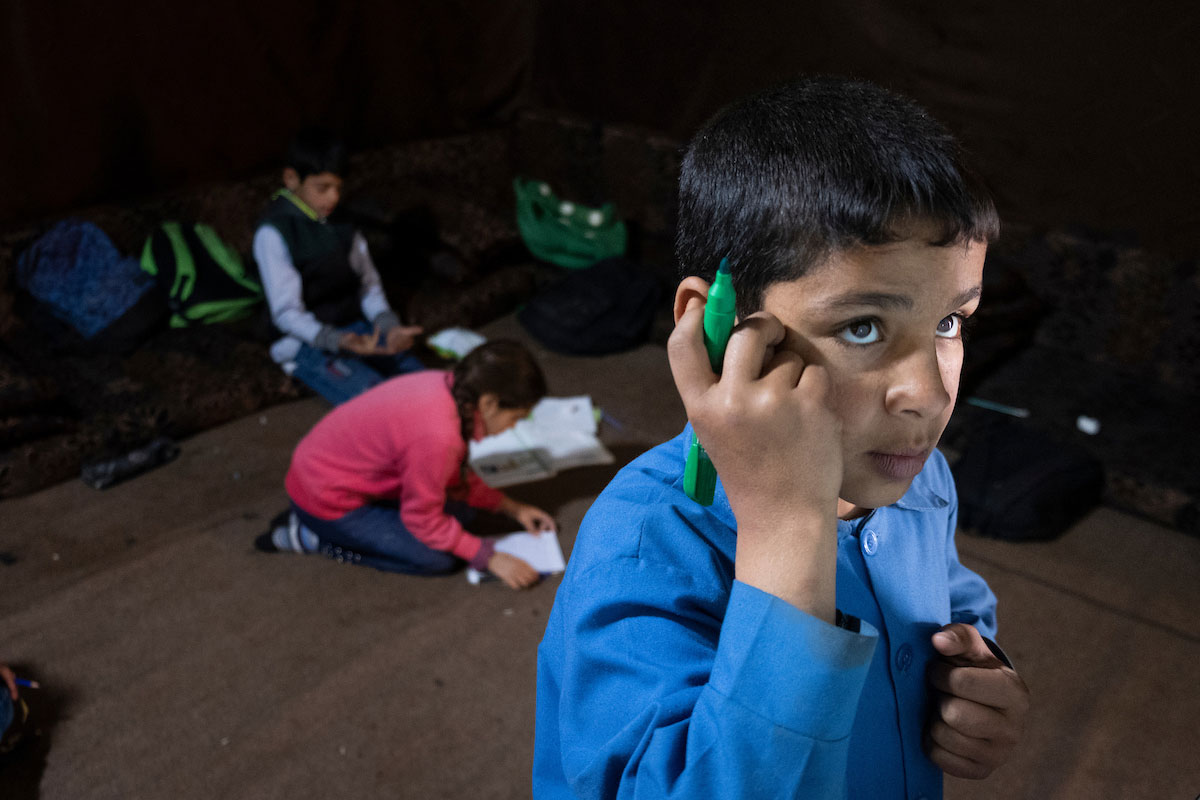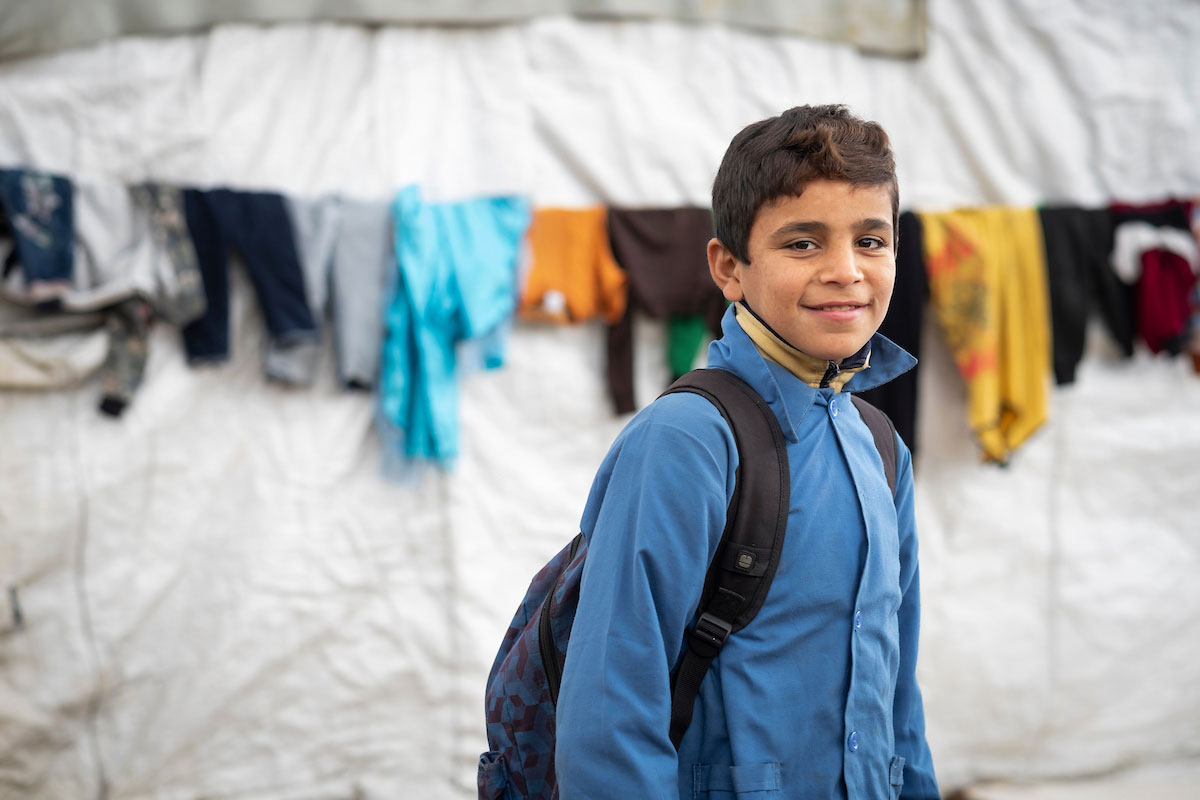There are nearly 500,000 Syrian refugee children in Lebanon, but fewer than half are enrolled in school. High costs prevent many students from receiving an education.
Relief International’s Cash for Education Program in Lebanon works to overcome financial barriers to education by providing Syrian refugee families with a stipend of $52 per month for each child enrolled in the program. The money can be used any way they want, on one condition: the child remains in school and participates in our homework support program, which runs throughout the school year. The program currently reaches 500 Syrian refugee children in Lebanon’s Bekaa Valley, many of whom are at high risk of dropping out of school.
“Cash is a really important tool,” shares Valerie Rowles, Relief International’s Country Director in Lebanon. “It gets lots of different jobs done at once by meeting people’s needs and giving them the dignity of choice, while also helping stimulate the local economy. It really allows us to offer the best solution for each individual’s situation.”

Mohammad Al Sayyah uses part of the cash assistance he receives from Relief International to pay for his sons' school lunches.
© Elie Gardner/RI
It is dangerous not to be educated.
Mohammad Al Sayyah has eight children, aged two months to 13 years old. When an airstrike wiped out their home in Aleppo, Mohammad fled with his wife, young children and elderly parents for safety in Lebanon – because he’d been there before. A talented leather worker, Mohammad spent two-months in southern Lebanon in the late ’90s honing his craft.
Today, Mohammad’s life in Lebanon is markedly different. He shares a cramped tent with his extended family in one of the larger informal settlements in Lebanon’s Bekaa Valley. While he sometimes works in construction, his family relies on humanitarian assistance from international agencies to meet their most basic needs such as food, electricity, rent and diapers for their young children.
Though most of his children were too young to attend school in Syria, the family’s sudden displacement to Lebanon has caused major disruption to his oldest son Mustafa’s education.
“Education is very important to us, especially in Lebanon. It helps keep the kids off the street. We had a neighbor whose son was hit and killed by a car – he was the same age as Rahim.” – Mohammad Al Sayyah, whose children are enrolled in Relief International’s Cash for Education program
Determined to prevent his other children from enduring the same fate, Mohammad jumped at the chance to enroll his three sons in Relief International’s Cash for Education program. Before this program, the family struggled to send each of their kids to school. Now, his sons Rahim, 12, Mahmoud, 10, and Abedalilah, 9, participate in the program, providing the family with an additional $156 each month. The boys also receive personalized tutoring as part of Relief International’s Homework Support Group.

Relief International’s Education Field Assistant Layal Al Sayed checks students’ homework.
© Elie Gardner/RI
“This is the only program that takes into consideration the many different costs associated with attending school: transportation, winter clothing, pens and pencils, notebooks, and lunch. Whereas other cash programs only cover transportation costs, Relief International’s program looks at the whole picture.” – Wael Khaled, Relief International’s Cash Program Coordinator
The Homework Support Group sessions take place in the home of another student enrolled in the program. On average, there are between ten and 20 students assigned to each group. Sitting on cushions set up around the room, Rahim and his brothers pull out their homework, concentrating deeply on the problems in front of them.
When Rahim attended his first homework support session, he remembers feeling a sense of relief when his teacher explained how to complete each exercise. He didn’t know how to finish his homework on his own. Now, he helps his two younger brothers with their homework and is at the top of his class.

Rahim concentrates on solving multiplication drills during Relief International's Homework Support Group. He is at the top of his class.
© Elie Gardner/RI
While most of the students study independently, Rahim goes up to practice his math and English skills on the whiteboard set up in the middle of the room. This week, the group practices spelling the four seasons in English and drills down on decimal multiplication. Rahim calls the teacher, Ms. Layal, over to check his work after most problems, although it rarely needs correction.
Under Ms. Layal’s careful guidance, all 12 of the students start to grasp the nuances of spelling “Spring” with an “n” sound rather than “sprig,” which is a more natural combination found in Arabic. “In a group of this size, my attention is always being pulled in a million different directions. But there are two or three times as many students in their classes at school,” shares Ms. Layal. “That’s why these sessions are so important – they provide students with the one-on-one support they need to reinforce the lessons they’re learning in school, which is a different curriculum than what they’re used to.”
The session runs for an hour and a half. As students pack up their bags, Rahim and his brothers begin to congregate in the narrow entryway, waiting for the bus. Hearing the familiar honk of the horn, the boys run out into the pouring rain to board the bus to school.
